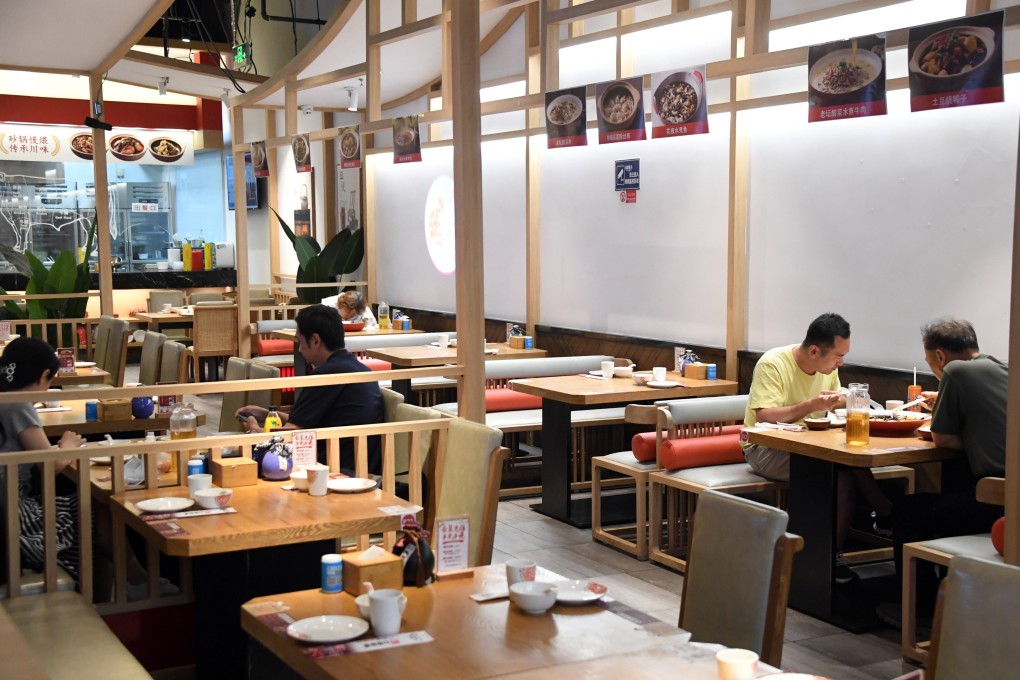As China’s capital reopens restaurants, foodies and lunch crowd remain reluctant to dine out
- Beijing has relaxed its coronavirus control measures after more than a month, but many workers and ordinary people have not yet resumed their normal routines
- Meanwhile, a number of businesses remain closed – some permanently, while others are looking to hire staff

As state media painted a reassuring image of patrons eagerly returning to Beijing’s restaurants this week after being forced to dine at home for 36 days, people on the ground suggested the real picture was less impressive.
That means most restaurants, parks and entertainment venues are once again open in 15 of the capital’s 16 districts. But it doesn’t mean people are lining up to get in.
“Our restaurant is a place where customers dine in and make business deals, but now they haven’t fully returned to work in person, so we are seeing few customers,” said Kong, the manager of a Guangdong-style restaurant in east Chaoyang district who declined to give his full name.
I will be more assured if there are no new cases for a few days
Scenes of eateries bustling with customers – long deprived of in-person service – have not panned out as expected for hopeful restaurateurs. Managers in some places could be seen this week sitting idly in their empty restaurants, busying themselves with bookwork during lunch hours.
Even though the dine-in rules have been relaxed, many workers have not resumed their normal routines, as Kong noted.